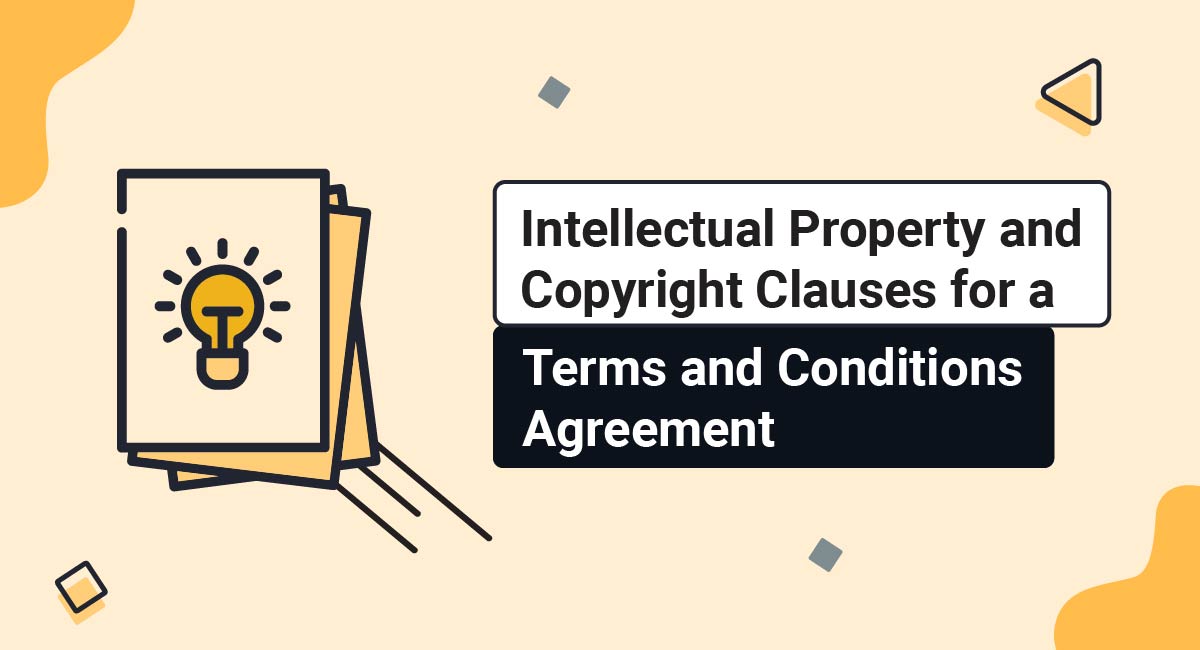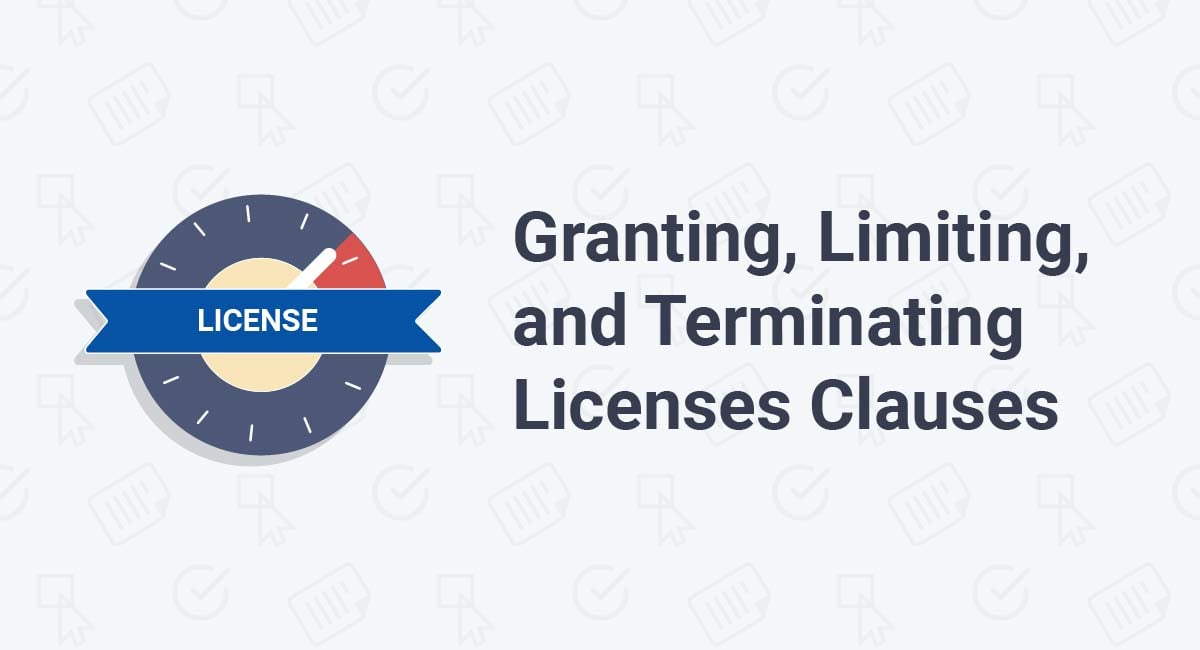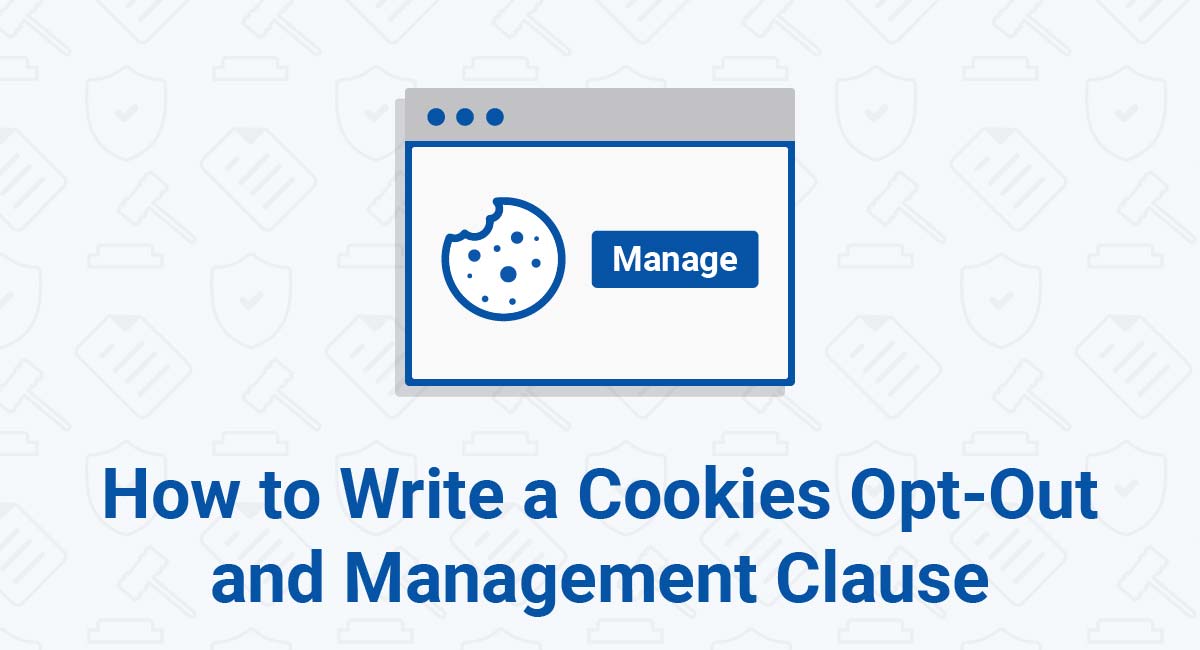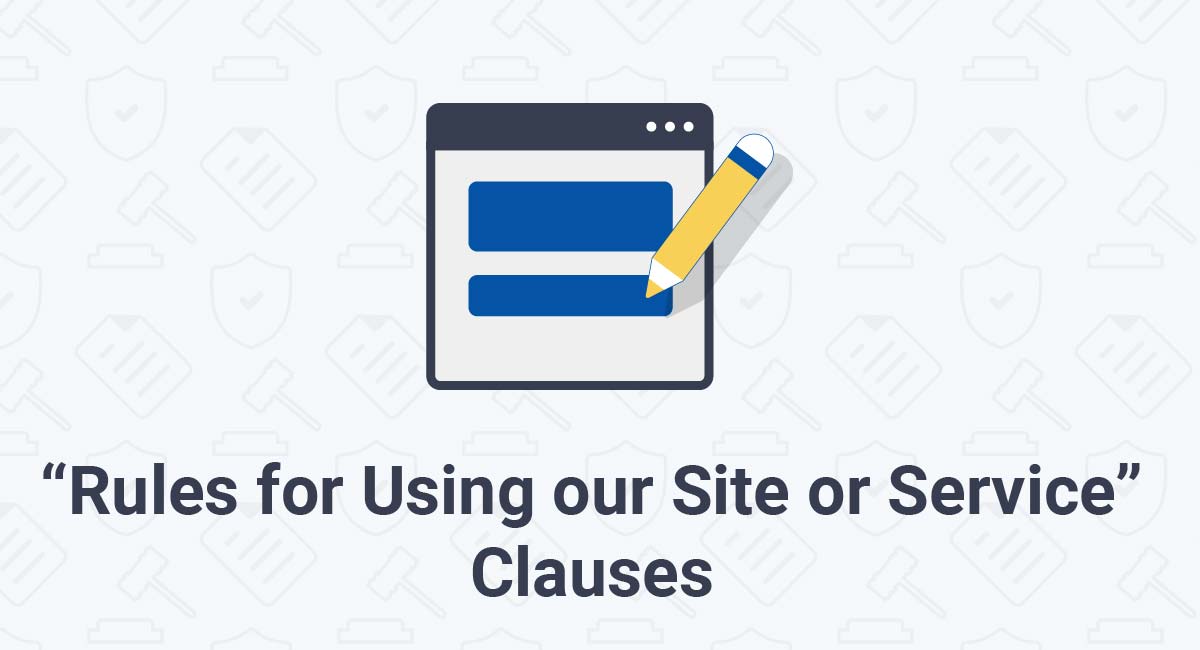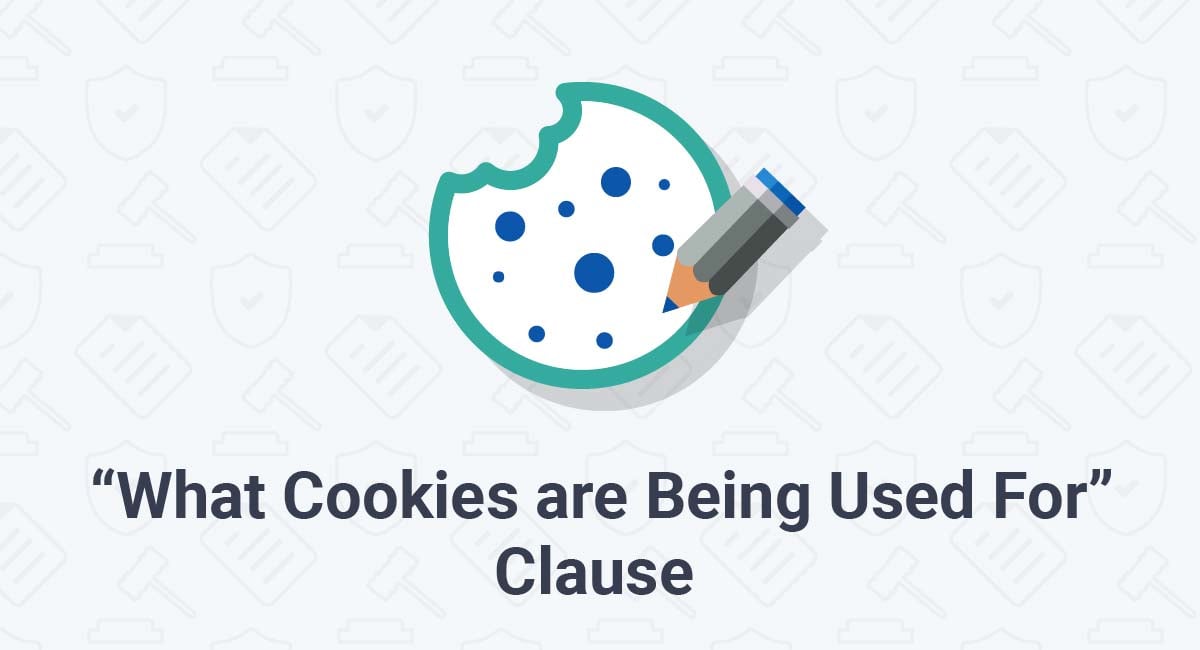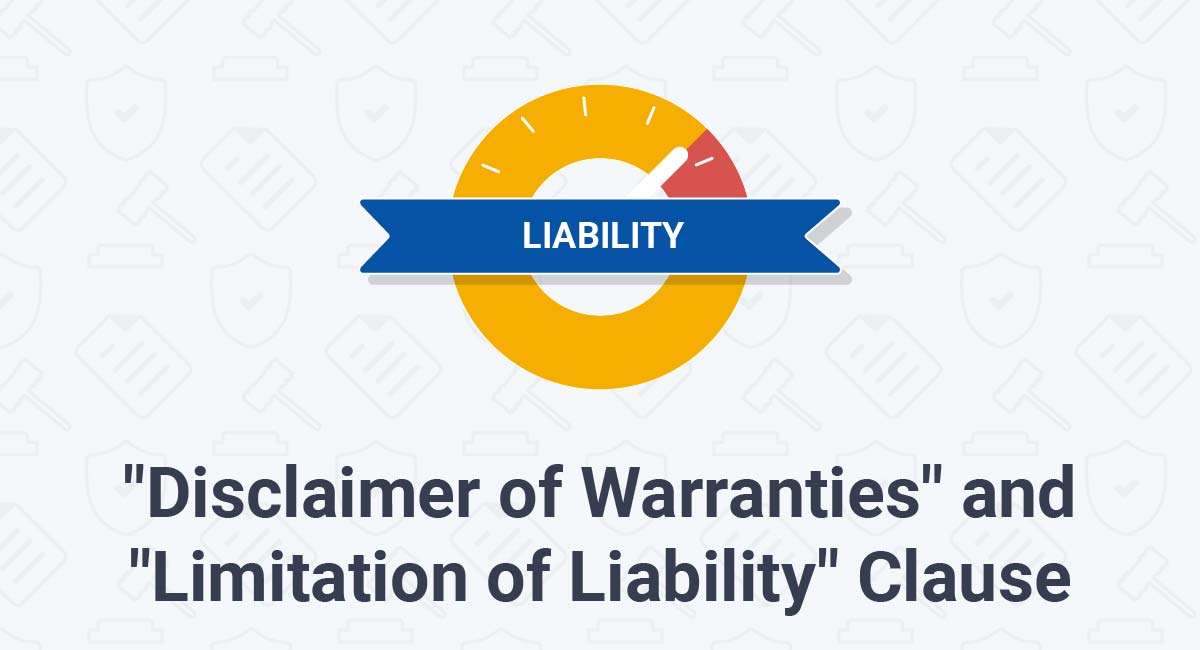Blog: Clauses
Page 2
Navigate
-
EULA Agreements
-
Cookies Policy Agreements
-
Disclaimer Agreements
-
Privacy Policy Agreements
-
US Privacy Laws
-
Return Policy Agreements
-
Legal Requirements
-
EU Privacy Laws
-
Terms & Conditions Agreements
-
How to
-
Asia Privacy Laws
-
CA Privacy Laws
-
Consent
-
Templates
-
Consumer Privacy
-
AU Privacy Laws
-
LatAm Privacy Laws
-
Clauses
Intellectual Property and Copyright Clauses for a Terms and Conditions Agreement
So you've built a website of your own, but once you have that, you need to defend it. If you have a great logo, someone else might want to use it. It happens all the time, and the first legal line of defense against someone stealing your intellectual property is...
Granting, Limiting, and Terminating Licenses Clauses
A clause that addresses the granting, limiting, and termination of licenses covers how the license to a product is given, the restrictions on that license, and the conditions and results of terminating the license. For any business that relies on selling licenses in their primary business model (such as a Software-as-a-Service...
How to Write a Cookies Opt-Out and Management Clause
Cookies are an important part of creating effective, personalized websites and apps. However, not all users want certain kinds of activity and information tracked by your website. Tightening regulations and changing user preferences mean that a Cookies Opt-Out and Management Clause is an important part of any complete Privacy Policy and...
"Rules for Using our Site or Service" Clauses
While a Terms and Conditions agreement isn't a legal requirement for your website, we strongly recommend having one to protect your website, your service, and your users. A Terms and Conditions agreement is especially useful for clearly and unequivocally setting out the rules for using your website or platform, by inserting...
How to Write a "What Cookies are Being Used For" Clause
Many Privacy Policies and Cookies Policies have a clause explaining what cookies are being used for. Including a clause like this both builds trust with users and may fulfill requirements for your policies. The clause may explain that the website uses cookies, what data the cookies take, how the site uses...
"Disclaimer of Warranties" and "Limitation of Liability" Clause
A Terms and Conditions agreement can help protect you against a wide variety of legal actions, from litigious users and customers. Having one isn't legally required, but it can be useful in deterring and responding to legal actions. It also provides guidelines that establish what to do in the case of...
